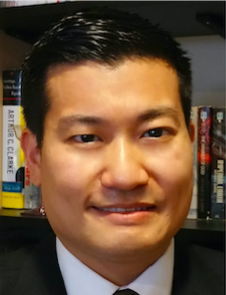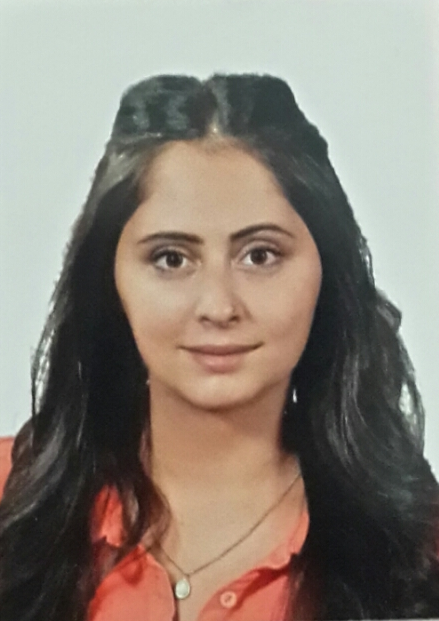The Social Terrain of Islamist Radicalization: Insights from Jordan
Editor's Note: Jordan occupies a contradictory space in the US struggle against the Islamic State. On the one hand, it is a vital source of basing, intelligence, and other support for the military and intelligence campaign against the group. On the other hand, many Jordanians have joined the Islamic State’s ranks. Sean Yom and Katrina Sammour, two experts based in Jordan, explain why so many Jordanians are taking up arms, finding that the fault lies in the country’s disastrous educational system.
***
Published by The Lawfare Institute
in Cooperation With

Editor's Note: Jordan occupies a contradictory space in the US struggle against the Islamic State. On the one hand, it is a vital source of basing, intelligence, and other support for the military and intelligence campaign against the group. On the other hand, many Jordanians have joined the Islamic State’s ranks. Sean Yom and Katrina Sammour, two experts based in Jordan, explain why so many Jordanians are taking up arms, finding that the fault lies in the country’s disastrous educational system.
***
The Hashemite Kingdom of Jordan stands on the front lines of the war against the Islamic State (IS). The country hosts thousands of US and British troops, and indeed is the logistical hub of joint Western-Saudi efforts to contain the Syrian civil war. Most Westerners see Jordan as an oasis of stability: the government and military functioning well despite the influx of a million Syrian refugees. Yet this oasis hides a dark secret: Jordanian youth have proven extremely vulnerable to the clarion call of Salafist-jihadism, with thousands joining IS and other radical groups.
To explain this, go beyond the Islamic State’s tech-savvy recruitment strategy. The real question is why Jordanian youth have become so susceptible to extremist calls in the first place. Here, a striking answer emerges: young Jordanians primed for radicalization are those who feel desperate amidst a failing educational system and, to some degree, economic hardship. The Islamic State need only drop its seeds into this fertile soil; it does not need to till and plow for many to blossom into militants.
How bad is the problem? Jordan is consistently cited as being a leading recruitment population for ISIS, with among the highest rates of per capita recruitment in the world for ISIS volunteers who travel to fight in Syria and Iraq. This does not include the roughly 7,000 followers of Salafist-jihadi ideals already circulating around Jordan who may not fight abroad but can wreak havoc at home under IS guidance. This past March, security forces raided one such terrorist cell in the northern city of Irbid, killing seven. But even frequent crackdowns cannot catch them all. In June, assailants struck an office of Jordan’s much-feared intelligence services outside Amman, killing five. Hundreds more also remained detained, suspected of contact or collaboration with radical Islamist networks.
Conventionally, researchers have blamed unemployment and poverty for such events. Jobless and unfulfilled, some Jordanians are indeed seduced by Salafist-jihadi recruiters offering financial and physical rewards. Such offers especially resonate in decrepit areas like Palestinian refugee camps and poor tribal towns, which are saddled with drug addiction and crime.
Jordanian youth have proven extremely vulnerable to the clarion call of Salafist-jihadism, with thousands joining IS and other radical groups.
But economics cannot explain everything. For one, the extremely poor are not joining radical Islamist networks. They are more likely to sell their kidneys than go to Syria. Moreover, many Jordanian fighters come from middle-class backgrounds. In 2013, a Jordanian Air Force captain from a well-known family defected to join Nusra Front; he was later killed fighting for the Islamic State. Last fall, a Member of Parliament’s son was killed driving an IS car bomb. Finally, ground zero for Salafist-jihadi recruitment is no longer the impoverished southern town of Ma‘an, but instead northern cities like Irbid and Salt. These more modernized cities barely resemble the tribal backwaters assumed to embrace extremist ideologies. Their youths targeted by Salafist-jihadi recruiters often have private-sector jobs and have seldom faced real destitution.
However, these youths share something else thing in common – a sense of desperation permeating their lives, having lost faith in government to fix the economy, provide services, and induce pride in citizenship. Their turn to religion is a deliberate one, motivated by a desire to find meaning and purpose. This is the resounding theme in interviews with jailed IS affiliates and other radical Islamists in Jordanian prisons.
Such desperation is the outcome of a broken public educational system, which has robbed many youths of critical thinking and civic awareness. Jordanian public education, including secondary schools and universities, delivers the message that immersion within Islam offers a path to salvation – precisely the message that Salafist-jihadi groups offer. Starting in grade school, textbooks and curricula fixate upon religion as the only true anchor of self-worth. The nation-wide course on General Culture is replete with units on the Qur’an and Islamic philosophy – hardly controversial in a Muslim-majority country – but also bursts with attacks on science, technology, and innovation. The civics textbook justifies that the welfare of Muslims matters more than non-Muslims and maintains that Sunni (not Shi‘a) Islam is the only true faith.
It is little wonder that one Jordanian critic has called the kingdom’s public schools “IS boot camps.” And to their credit, many teachers and reformers have tried to pluralize the curricula. However, efforts at systemic reform never make it past the Ministry of Education, which remains dominated by conservative religious thinking. This is a peculiar historical legacy: decades ago, the government gave the rising Islamist movement influence over education in return for political loyalty. Today, that extremely conservative bent not only resists change but also reproduces itself with every generation.
Such desperation is the outcome of a broken public educational system, which has robbed many youths of critical thinking and civic awareness.
For instance, Jordanian universities require applicants to take a general secondary examination called the tawjihi. While the prestigious sciences select the highest-scoring students, Islamic law and theology – the programs that produce the country’s religious authorities and prayer leaders – are given the lowest tawijhi performers. Observers have described classes in such programs as breeding grounds for extremism, with religious and analytical instruction based upon conservative Islamic texts that discourage debate. Whenever pupils find such teachings unfulfilling, they can turn to the one source of Islamic discourse which is louder and more extreme – the Islamic State. The topic is so sensitive that, apart from vague promises to make religious instruction more open-minded, the government does not permit any systematic survey of its prayer leaders and Islamic instructors.
Yet perhaps the greatest evidence for the education-extremism nexus is that social conservativism thrives in mass society while the Jordanian elite, products of private schools and Western universities, patiently tell Western journalists about the kingdom’s pluralism and toleration. A recent Pew poll revealed that 74 percent of Jordanians support making Shari‘a the law of the land, 82 percent support the death penalty of those converting out of Islam, and 67 percent support stoning as punishment for adultery. By contrast, the Jordanian government constantly espouses values of Islamic moderation and liberalism, reminding Western audiences that it neither imposes Shari‘a nor tolerates the killing of apostates and adulterers.
This disconnect epitomizes the bigger dilemma. As a linchpin in the war against the Islamic State, Jordan rightly claims it needs more economic and military aid from the West. Yet all is not well in its social fabric, and the educational system is a major reason why. It is high time to address this. Schooling has geopolitical implications in the kingdom, and without its transformation, Western efforts to maintain stability and security in Jordan will be undermined. Yet the impetus for change must come from the government and society, not the West: if there is anything more controversial then saying Jordanian schools support Islamic extremism, it is suggesting that Americans should be the ones who reform them.
Correction: An earlier version of this article included a statistic that "nearly 4,000 Jordanians have fought in Syria and Iraq," which is derived from a report by the Jordanian newspaper Al-Ghad. Recent rese






